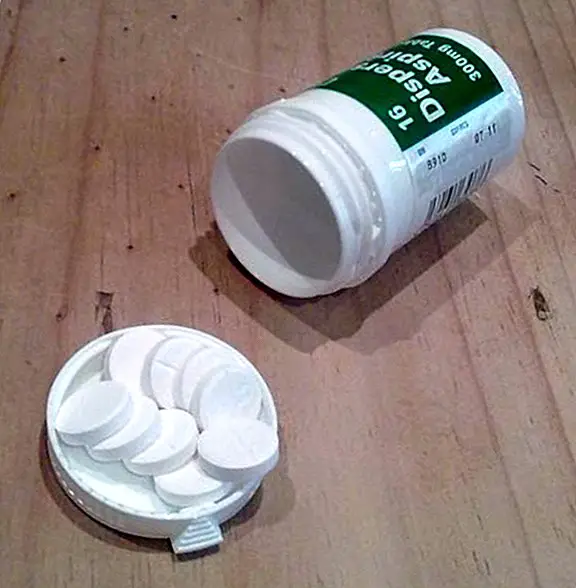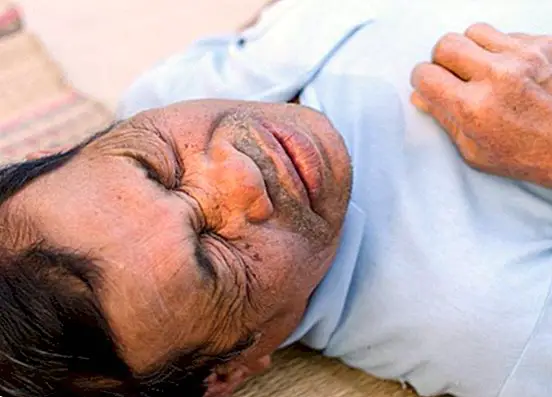Verbena: benefits, properties, remedies and contraindications
The verbena It is a medicinal plant belonging to the family of "Labiadas" and its scientific name is "Verbena officinalis" This medicinal plant is used to treat various conditions due to its properties.
Between the properties of verbena most important we can highlight that it is a plant with antispasmodic quality, which acts in turn as a nervous tonic, sedative, analgesic, diaphoretic, analgesic, emenagogue, hepatoprotective, expectorant, pectoral and antibacterial.

In regard to the active principles of the verbena, it is necessary to mention the presence of verbenalina (a bitter glucoside), essential oils, tannins and mucilages.
Verbena is used to treat and combat states of anxiety, depression and melancholy, because it helps strengthen the nervous system. On the other hand, it is also used in case of fever because it has diaphoretic properties. It is also used to prepare mouth rinses and is indicated for Gum conditions.
In addition, the verbena for its hepatoprotective properties helps protect both the liver and the gallbladder, while it is purifying the blood.
The analgesic properties of the verbena make it effective to soothe the pain caused by sciatica, sprains, tendonitis, muscle contractures, back pain, cervical pain, headache.
This medicinal plant can be used both for internal consumption and for external use.
Natural remedies with verbena
With the verbena we can prepare different remedies and for their properties in some cases the same preparation has several uses, to treat several conditions.
Infusion of relaxing verbena for stress or anxiety
The verbena is a medicinal plant with various properties and in this case the infusion of verbena for its sedative properties and its benefits to strengthen the nervous system is good for cases of anxiety, stress, melancholy, apathy.
Prepare the infusion with 3 teaspoons of dried verbena plant and a cup of mineral water.
We put the water to boil and once it starts to boil we add the verbena. Turn off the heat, cover the infusion and let it rest for 10 minutes. We fill the infusion and when it is warm we can take it.
From this infusion we can take 2 or 3 cups a day.

Verbena compresses to soothe sciatica pain
To prepare the compresses or poultice of verbena we need a handful of fresh leaves.
In a heater we put a glass of vinegar and add the verbena leaves.
Reduce the heat and let the verbena leaves cook in the vinegar, until the vinegar evaporates.
Remove from the heat and wrap the warm sheets in the gauze or compress and then place it on the sciatica or area where the pain is.
Verbena compresses for migraines
To prepare this remedy we first have to make a decoction with dried verbena leaves.
The decoction will be prepared with 3 teaspoons of dried verbena leaves and a cup of mineral water.
We put to the fire the water and the verbena everything next to boil. When it starts to boil, lower the heat and let it boil for 15 minutes. Remove from heat, strain and let cool.
When it is cold we moisten the compress or handkerchief in the preparation and place it on the forehead.
We get comfortable and hold for 5 minutes. We repeat again wetting the compress until the pain subsides.
Another option is: crush the fresh leaves of verbena and place them on the forehead.
Verbena gargles for sore throat
To prepare the gargle with verbena we will prepare an infusion with dry verbena plant.
We put a cup of mineral water to the fire and when it begins to boil add two teaspoon of dry verbena plant.
Turn off the heat, cover the infusion and let it rest for 10 minutes. We fill the infusion and when it is cold we can make the gargles.
Gargles can be done 3 times a day.

Contraindications of verbena
The verbena taken or applied in the doses or form advised by the therapeutic professionals does not have to be harmful or toxic.
That is why it is advisable to be guided by the professionals when purchasing the plant, as well as to follow the doses, guidelines and instructions of the leaflets when we buy the verbena in fresh, dry or any other verbena format.
Verbena however is contraindicated in the following cases:
- People who are allergic or who have presented intolerance to the plants of the Labiadas family.
- During the embrazo.
- During the period of lactation.
- In children.


